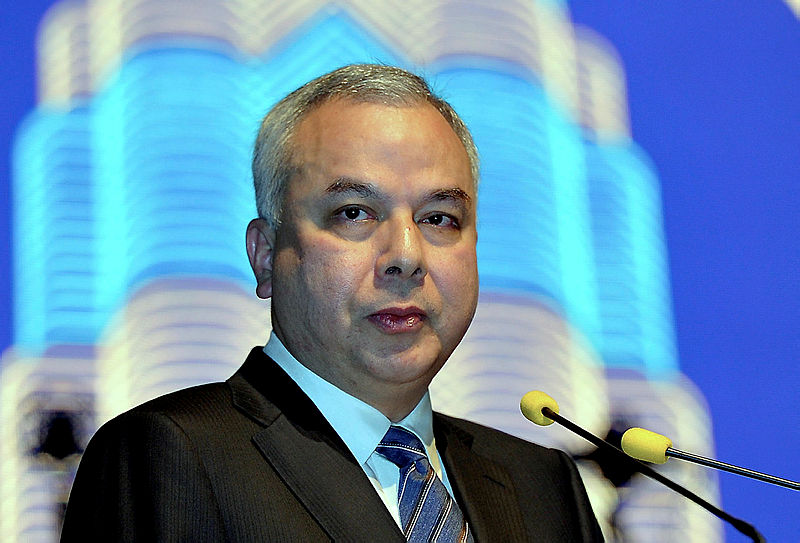IPOH: Forthright and eloquent, Perak ruler Sultan Nazrin Shah’s (pix) statements on various issues affecting the country, region and the world have always won the respect, praise and admiration of many.
Whether it’s on the economy, education, politics, ethnic relations, Islam, the fate of the Malays and Muslims in general, Sultan Nazrin’s views on these matters make front-page or prime news in the mainstream media and are shared on social media by thousands of followers and commentators.
A ruler highly regarded for his intellect, Sultan Nazrin, 62, had earned a BA in Philosophy, Politics and Economics from Oxford University, a master’s degree from John F. Kennedy School of Government at Harvard University and PhD in Political Economy and Government, also from Harvard University.
Last Nov 2, as Deputy Yang di-Pertuan Agong, Sultan Nazrin signed the instrument of declaration on his exercising the functions of the King in the absence of Yang di-Pertuan Agong, Sultan Muhammad V.
Days later, when opening the national-level Maulidur Rasul celebration in Putrajaya, Sultan Nazrin ticked off leaders who were untrustworthy and devoid of integrity as they could cause suffering among the people, with poverty spreading when leaders prioritised increasing their material wealth.
He said sudden wealth without enrichment of the mind, intellect, knowledge and the soul is not the true meaning of being wealthy, instead giving rise to an unhealthy culture that would lead to wastage of resources, poor development in the country, unemployment, crime and other social ills.
Sultan Nazrin is known as an outspoken advocate of nation-building, multiculturalism, tolerance, moral and ethical values, besides good governance.
Hence, the raising of sensitive racial and religious issues which could cause uneasiness and divide the country’s plural society, especially of late, did not escape the ruler’s attention and concern.
Speaking at the 11th convocation of Universiti Sultan Azlan Shah in Kuala Kangsar, early this month, Sultan Nazrin reminded the people, especially leaders not to mastermind provocations that could incite communal hatred and hostility.
He said national harmony was being threatened due to political competition, with some political leaders becoming arrogant after winning the elections while the losers became vengeful.
“Malaysia has all the components that can stir a conflict, but the past leaders chose not to be in conflict. Unity should prevail so that this peaceful, harmonious and prosperous nation can be passed on to future generations,“ he added.
Another much-talked-about speech by Sultan Nazrin was on Malays losing the spirit of ukhwah (brotherhood) and caught in the blame game and competition to embarrass one another which only reflected poorly on themselves.
He said the Malays now appeared to be increasingly weak because they had lost the spirit of brotherhood, flawed in character and increasingly intoxicated in the pursuit of material wealth and competition for power, despite Islam having built the Malay race in the past to be disciplined, trustworthy, honest, noble and sincere.
As socio-economic development in Malaysia and the region is also a subject of interest for Sultan Nazrin, whether in his research or speeches, he had listed down three shifts to propel the country forward.
He said there was a need to develop a more open and resilient Malaysian society and economy to move the country forward to the next level and achieve a high-income status in line with its potential.
The two other key structural shifts required to achieve these goals are establishing a truly just and equitable society and taking full advantage of the current wave of technological transformation.
Sultan Nazrin shared these views when addressing the Institute of Strategic and International Studies (Isis) Malaysia’s Praxis Seminar themed, “A Time for Transitions: The Malaysian Economy to 2020’ in early October.
In making the economy and society resilient, competitive and performance-based, he noted that Malaysia was currently the world’s 22nd freest economy, according to an international economic freedom index, reflecting its attractiveness as a destination for inward investment and the central role of trade in its economy.
As he cares for all matters affecting the nation and its people, Sultan Nazrin also follows closely political developments in the country, especially after the 14th General Election (GE14) which saw the historic change of federal government from Barisan Nasional to the opposition front, Pakatan Harapan on May 9, after 61 years.
At the swearing-in of the new Perak Mentri Besar on May 12, the sultan reminded political party leaders and members to respect the outcome of the elections and appreciate the trust given by the people, especially the voters.
He said those leaders chosen as elected representatives should in return, uphold the people’s trust by serving them well, with integrity and sincerity.
In his keynote address at the World Conference on Islamic Thought and Civilisation 2018 in July, Sultan Nazrin also touched on GE14, saying that the unprecedented change occurred because the people had brought about a big political change through the ballot box.
As such, he wanted young people, as the country’s valuable asset, to drive that change, empower it and be actively involved in the decision-making process. — Bernama














